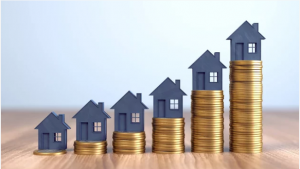 Does the idea of generating a passive income and becoming an investment property mogul sound exciting? If you’re considering the purchase of an investment property, it’s definitely not an easy decision. With the right research and the best real estate team at your back, however, you can prepare yourself for a successful future as a landlord or investment property owner.
Does the idea of generating a passive income and becoming an investment property mogul sound exciting? If you’re considering the purchase of an investment property, it’s definitely not an easy decision. With the right research and the best real estate team at your back, however, you can prepare yourself for a successful future as a landlord or investment property owner.
- Understand the different types of investment property.You can make income on your property without necessarily having to become a landlord. There are typically three types of investment property: residential rental properties, commercial property, or a “flip” or “resale” property you intend to sell at a profit.
Which option best fits how you want to invest is for you to decide. If a residential property is the way to go but you don’t want to take on the responsibility of becoming a landlord, you can look into hiring a property management company.
- Figure out if you can afford more than just the initial investment.
If you’ve been approved for a mortgage to purchase an investment property in Ontario, this is just the first step to successfully investing. You also need to be prepared to pay both the upfront as well as the eventual costs that are almost always expected from investments.For example, if you are purchasing a residential property with multiple units you will need to have an initial downpayment. This downpayment will need to cover legal fees as well as any land searches, etc. that need to be done.Once the property is transferred to you, you may need to pay to have units renovated and updated, hire a property management company, cover utilities and property tax, budget for the expense of empty units, clean up any other messes left by the previous owner, etc. You’ll find that your investment doesn’t always start offering a profit until well after you’ve put your hard-earned money down. It takes time, however, the payoff can be great and for many is worth the upfront costs.
- Know your exact financial situation.
You also need to keep in mind that on top of all these costs, you still need to cover the expenses for your own personal living, family, mortgage, and so on. As mentioned, you probably won’t start earning a profit on your investment property until well after it has been transferred to you. You need to be prepared to cover both the expenses related to your investment as well as those related to the home you own and live in. If you are only now considering investing and haven’t spoken to a bank, you may want to calculate your debt to income ratio and find out which lenders are willing to work within your financial situation before committing to a property.
Don’t let us scare you from wanting to become an investment property owner. We know lots of owners who are so happy they didn’t turn back because, eventually, the payoffs were worth the wait. And we can usually tell you that the first property is always the most difficult. So, whether you’re hoping to invest in commercial property or start “flipping” houses, do your research, know the laws and regulations surrounding each type of property in your jurisdiction (we can help with that), and, above all, be motivated and determined and you’ll be well on your way to financial independence through real estate.
Interested in finding out how investment properties can be a stepping stone to financial freedom? Reach out for a conversation today.

